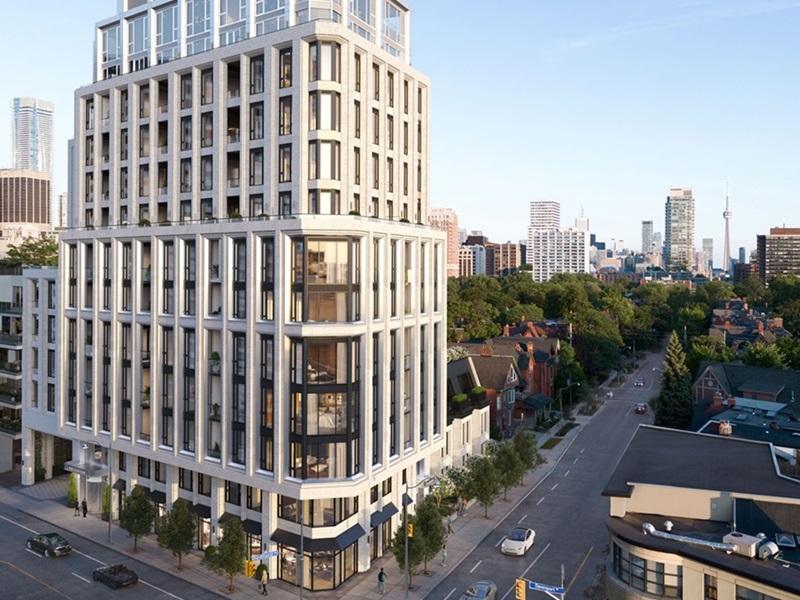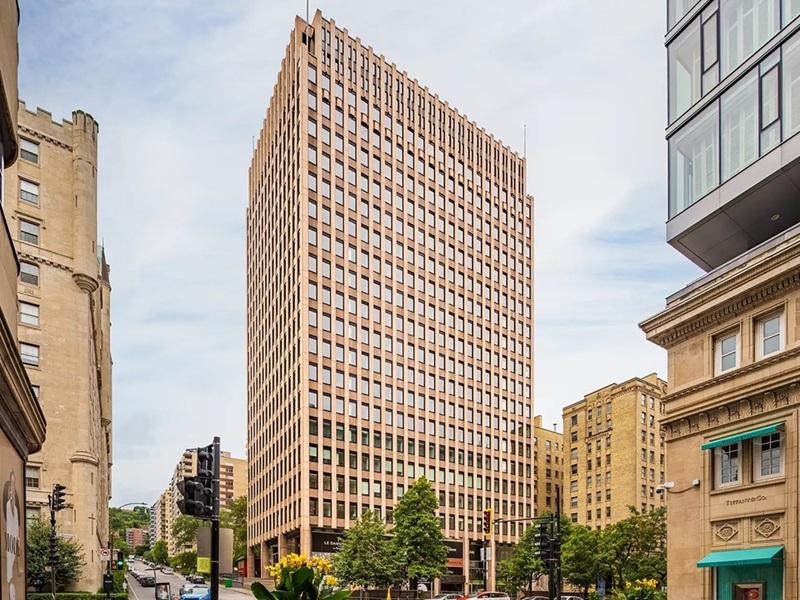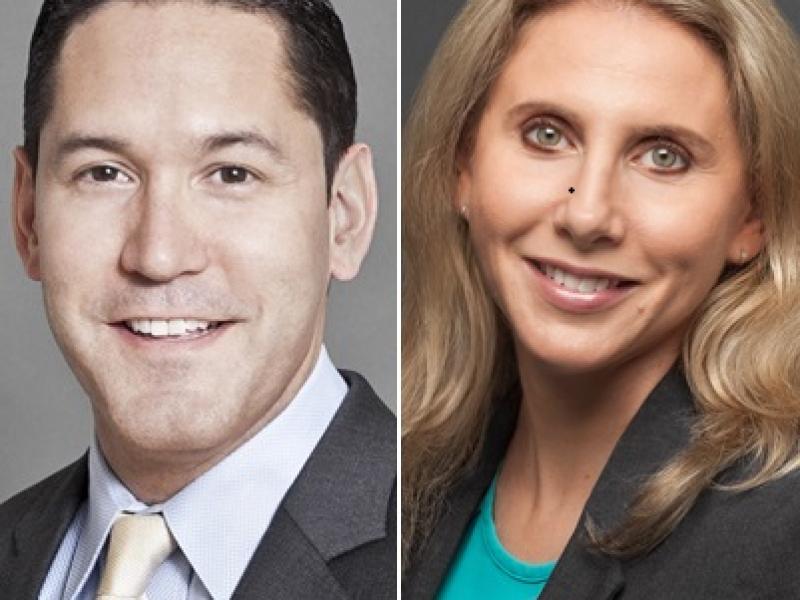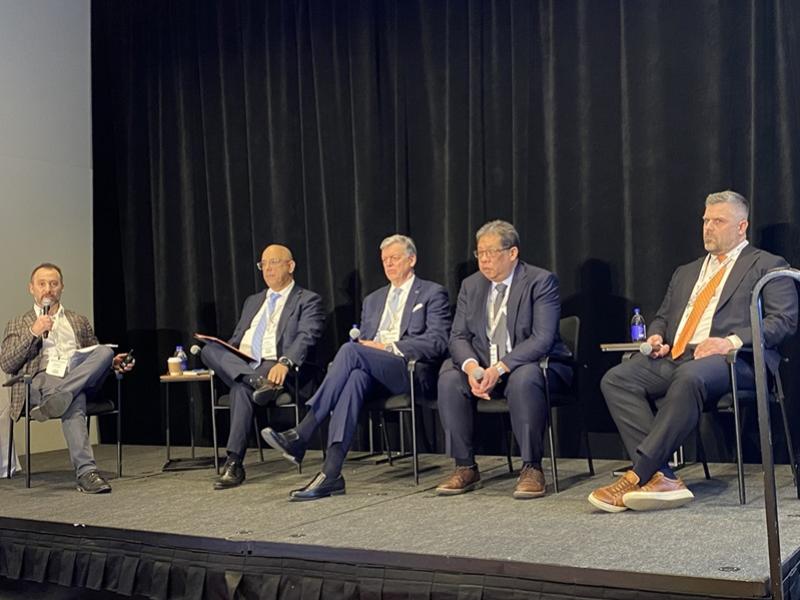
Jonathan Gitlin is president and CEO of RioCan REIT. (Courtesy RioCan)
The expanded role of governments, the expectations of investors, lenders and building occupiers, and the need for tougher ESG commitments were key topics when three senior executives recently pondered the state of commercial real estate 10 years from now.
The heads of RioCan REIT, Concert Properties and TD Asset Management’s global real estate investments tackled the issues in response to a REALPAC survey conducted in September and October. The discussion took place during a Dec. 1 panel at the 30th annual Real Estate Forum at Toronto’s Fairmont Royal York.
“There’s never been as much change in this industry as we’re seeing right now,” said REALPAC chief executive officer Michael Brooks, who moderated the panel which had both in-person and virtual audiences.
Thirty-three leaders representing 16,500 employees and $220 billion in assets under management responded to the survey, which focused on four areas: what society will be like; people and culture; strategy and leadership; and innovation and technology.
REALPAC is the national industry association dedicated to advancing the long-term vitality of Canada’s real property sector. Its more than 120 members represent about $1 trillion of assets under management and include publicly traded real estate companies, real estate investment trusts, private companies, pension funds, banks and life insurance companies with investment real estate in all asset classes.
Government intervention and political risk
Governments have played an even bigger role than normal in society as they have tried to guide constituents through the global COVID-19 health crisis.
While the panelists were thankful for the programs that have helped keep many individuals and companies afloat over the past 21 months, there are concerns about the government’s role in the coming years.
“We make a lot of assumptions when we put together a business model to build or buy something,” said Jonathan Gitlin, president and chief executive officer of RioCan REIT, which has more than 200 properties totalling around 37 million square feet and valued at $13.8 billion.
“But when you add to that the possibility of something politically motivated might turn your investment thesis on its head, that’s pretty scary and pretty daunting. I speak largely of housing policy and there’s already talk of enhanced rent control in Ontario and other provinces.”
Gitlin believes there’s already a clampdown on what developers can do and he’s concerned government intervention will exacerbate the housing supply crisis.
“We have to pick a long-term business strategy that works for us and manage appropriately because there’s always going to be volatility,” said Gitlin. “You can’t sway your business plans based on ever-changing political policies and landscapes.”
Need to engage with governments
“As industry leaders, we have an obligation to engage with all levels of government, all task forces and all agencies that are influencing policies going forward in order to try and get balanced policies out of our governments,” said Brian McCauley, president and CEO of Concert Properties, which owns more than $7 billion worth of rental apartments, condominiums, seniors communities, industrial and commercial properties, and public infrastructure projects.
“It’s very frustrating, but we have to keep at it because otherwise we’re going to get exactly what we deserve, which is policy that is not well thought out and has a ton of unintended consequences.”

Colin Lynch, managing director and head of global real estate investments for TD Asset Management.
Colin Lynch is the managing director and head of global real estate investments for TD Asset Management, which has almost $400 billion of total Canadian assets under management. He said the Canadian commercial real estate industry has to invest time through industry associations and government relations to do more to educate governments and not merely criticize them.
“Engagement across the political spectrum matters. Ultimately, I think there’s a lack of understanding in political circles of commercial real estate and the economics behind it.”
Dealing with political risks means running more pro formas for projects in order to be prepared for different variables and scenarios, Lynch added.
Dealing with investors and lenders
The survey indicated the biggest investor requirement moving forward will be strong performance, followed closely by environmental, social and governance (ESG).
“In order for us to truly make a difference on climate change and deal with some of the affordable housing and other social issues, it will impair returns,” said McCauley. “Those two are not exclusive.
“I think it’s going to be interesting to see whether investors have the patience to do what they know needs to be done from a socially responsible perspective and whether they’ll accept some impact on returns going forward.”
McCauley said it’s been an incredibly risk-free lending environment for most banks over the past couple of decades and he’d like lenders to take more risks alongside their clients.
“We’re going to need them to show up in order to help us invest the capital that we need to in order to modernize our buildings and hit some of those ESG objectives.”
Lynch said ESG and returns seem to be mutually exclusive, particularly in the industrial asset class, but he thinks that will change in 10 years or less.
Gitlin said there are costs to being better at ESG, but they’re worthwhile because they’ll enhance the ability to do business in the long run.
Customer and tenant expectations
Lynch said the Canadian office market is still in a health crisis and not a stabilized environment, so it’s too early to know if the current large number of office workers doing their jobs from home will continue when COVID-19, hopefully, plays a much smaller role in people’s lives.
He believes well-located, high-quality, transit-connected office space will be resilient, but for now he’s “seeing a lot more flexible lease term requests and shorter lease terms, and a lot more need for flexible space.”
“There’s no question that each and every one of our customers, no matter what asset class we’re in today, are going to require faster and more professional service from each and every one of us,” said McCauley. “Technology has a big role to play in our interface with our purchasers and our tenants going forward.”
Climate change and reducing carbon emissions

Brian McCauley, president and CEO of Concert Properties. (Courtesy Concert)
All buildings Concert starts by 2026 will produce zero carbon, according to McCauley. He said building owners are initially dealing with the low-hanging fruit, where they can make the fastest and easiest changes to reduce carbon emissions. Future moves to get to net-zero will be more difficult.
“We’ve invested a lot of time, money and effort into ensuring that we have internal expertise so it can educate the rest of our organization,” Gitlin said of RioCan’s commitment to saving energy and reducing carbon emissions.
“With everything we build, everything we buy and everything we manage, we’re focused on ensuring that we’re doing the right thing and making it part of each individual employee’s scorecards when they’re judged and compensated at RioCan.”
TD Asset Management screens for environmental risks for all properties acquired, both domestically and globally.
“I think that physical risk is underappreciated, undervalued and undercapitalized by our industry,” said Lynch.











